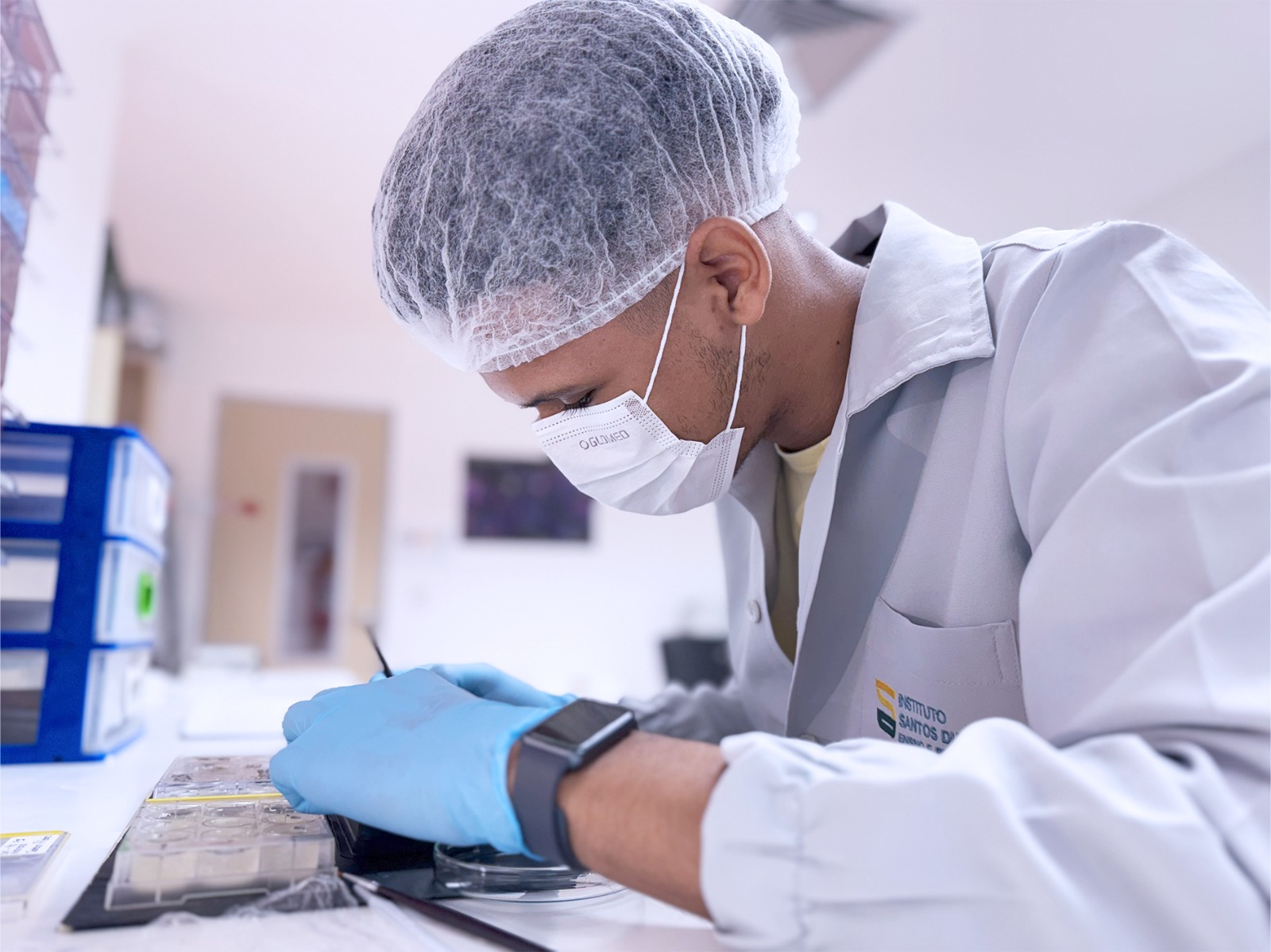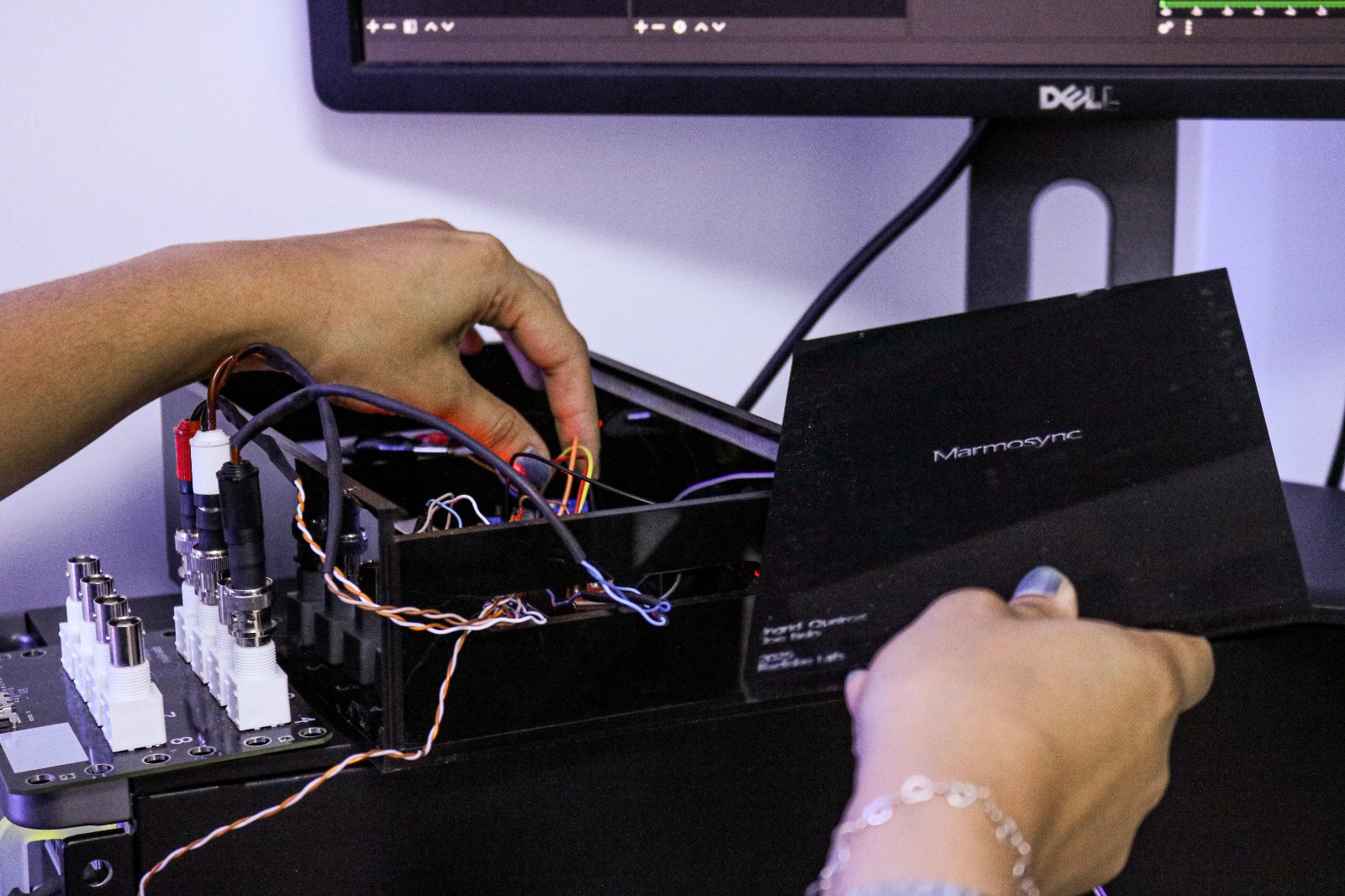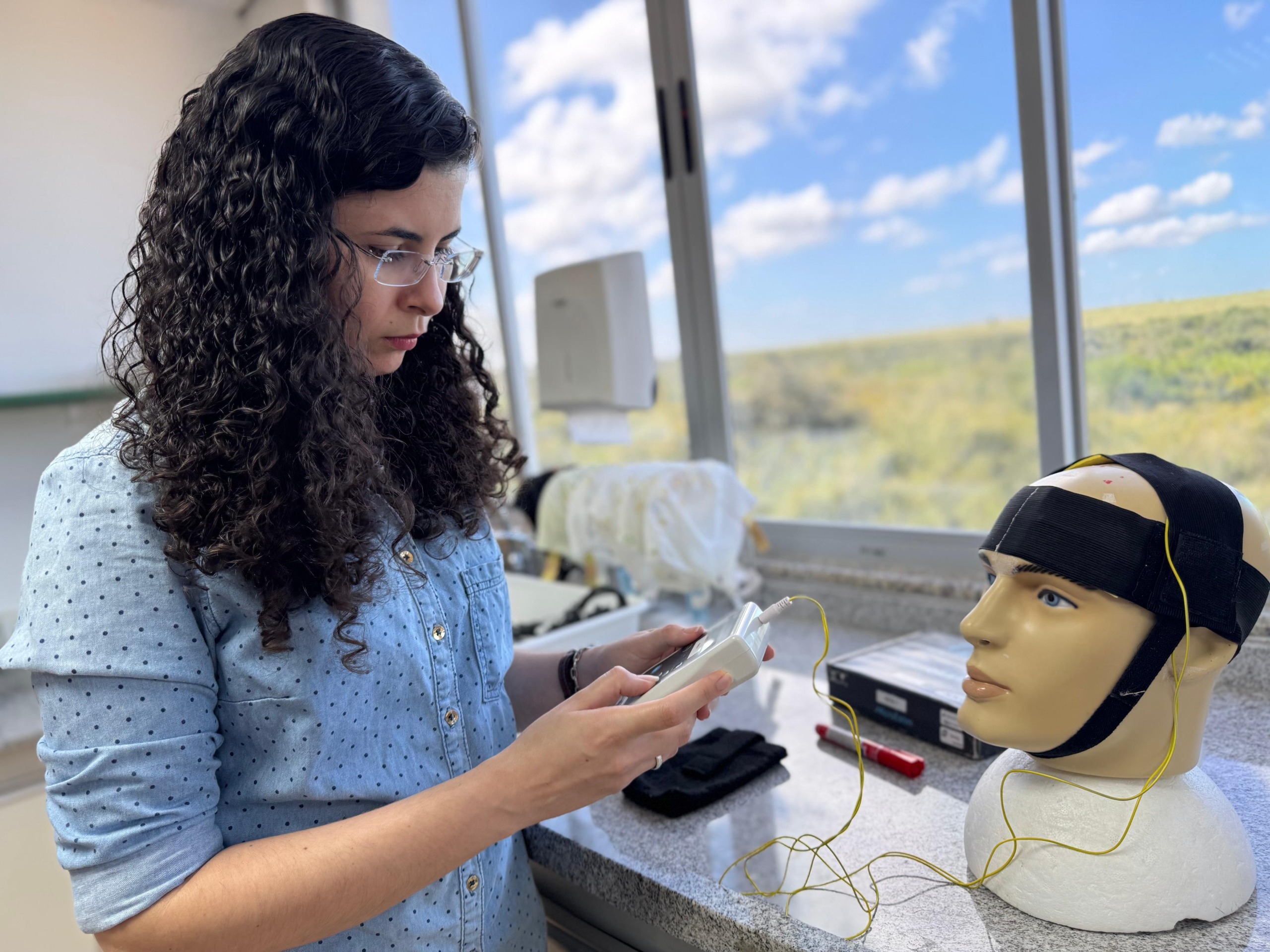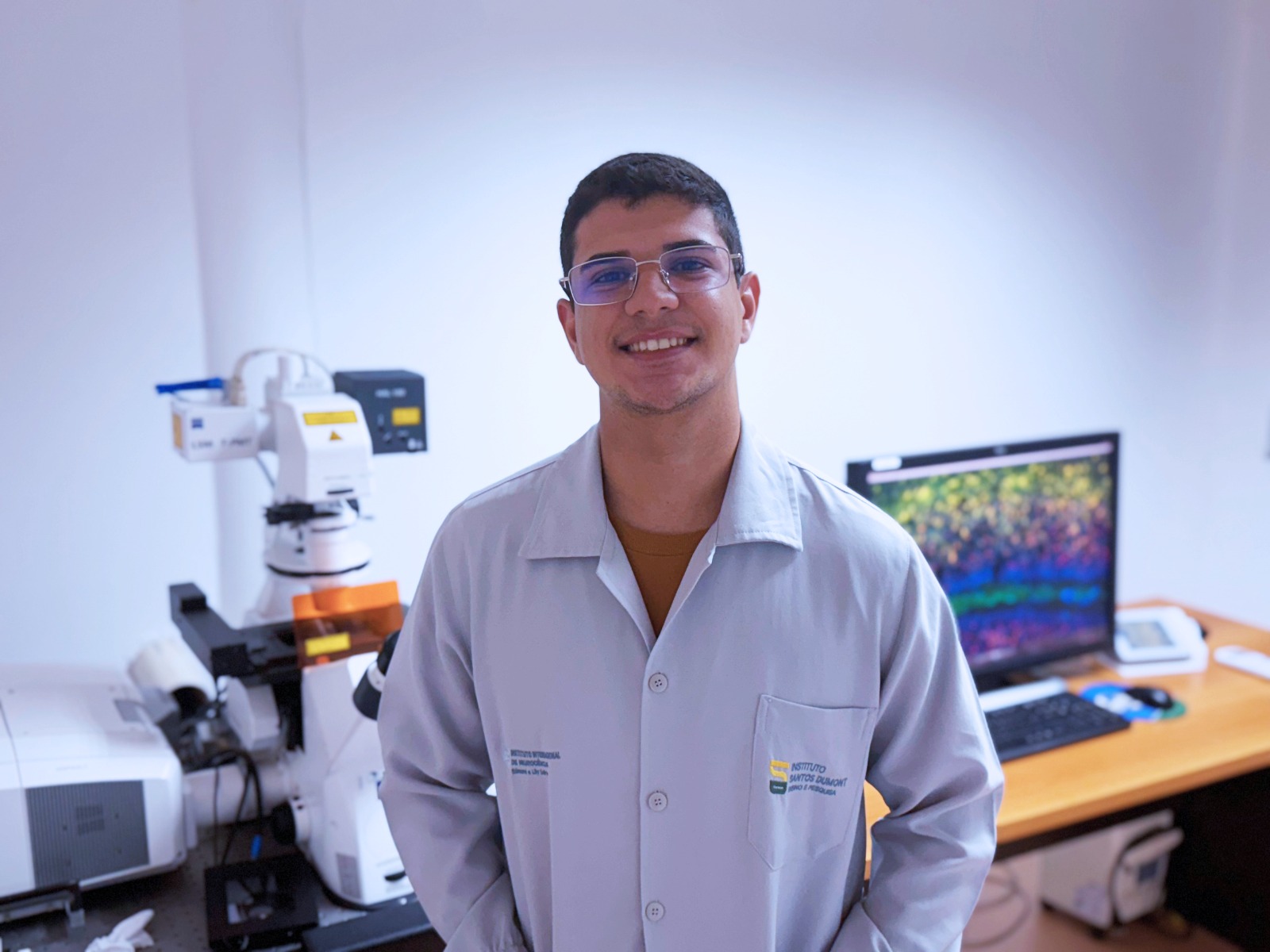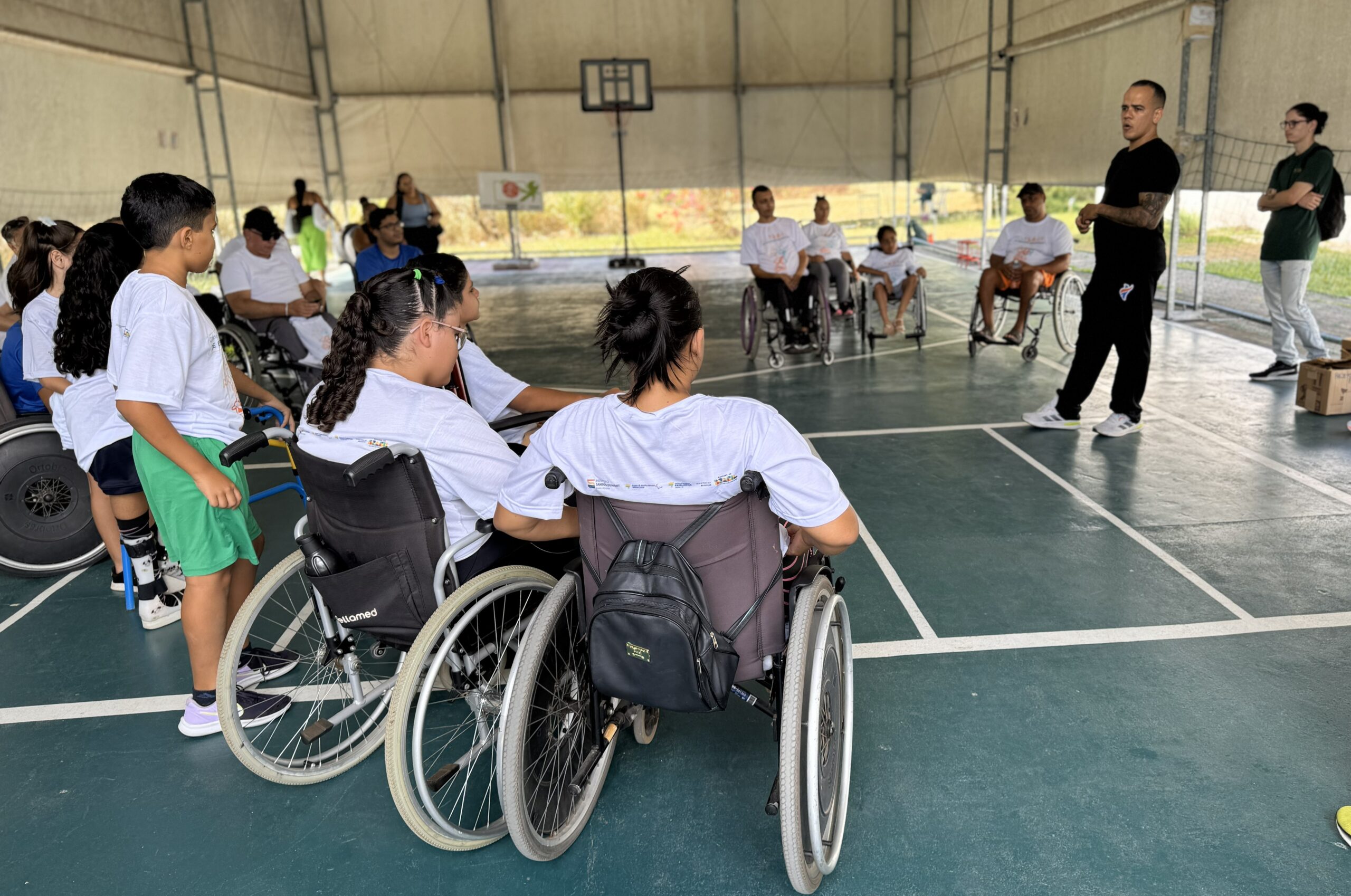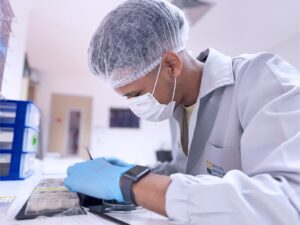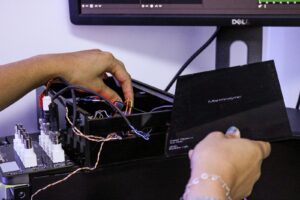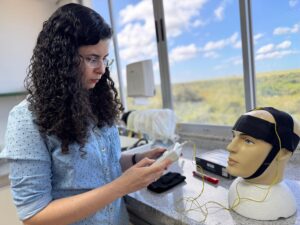03/01/2016 – Last edited: 03/07/2016
Note: This is the fifth master's class at IIN-ELS and not the sixth as announced on the day the article was published.
By Ariane Mondo – Ascom ISD

O Edmond and Lily Safra International Institute of Neuroscience (IIN-ELS) – one of the units of the Santos Dumont Institute (ISD) – received this Tuesday, March 1st, nine students from different regions of the country approved for their master’s degree Postgraduate Program (PPG) in Neuroengineering. This is the fifth class of the PPG/IIN-ELS, which is the first and only master's degree in neuroengineering in Brazil, aimed at graduates in the areas of health sciences or engineering areas (bachelor's degree or degree), who wish to deepen their knowledge with high standard of scientific and technical-professional competence. Those selected for this master's degree cycle are: Andrea Coutinho Sarmento, Edson Ricardo Junior, Eduardo Bacelar Jacobi, Juliana Avila de Souza, Juliana Harumi Sato, Lorena Andreolli, Mab Suellen Abreu Nunes, Pedro de France Cavalcanti, Thiago Chagas de Amorim.
The master's degree is free and offers classes at the IIN-ELS facilities in Macaíba, a city about 20 kilometers away from Natal (RN). In the 2016 selection process there were candidates from Mato Grosso, Paraíba, Santa Catarina, Rio Grande do Sul, São Paulo, Distrito Federal, Minas Gerais, Sergipe, Rio Grande do Norte and Bahia. The PPG/IIN-ELS makes two annual calls and the next selection for master's students should take place at the beginning of the second semester.
Neuroengineering is an interdisciplinary research area that brings together neuroscience and engineering methods to study the functioning of the nervous system and develop solutions for limitations and dysfunctions associated with it.
Enthusiasm and exchange of experiences

The new students were welcomed by researchers, staff and other master's students, in addition to scientific initiation students, who are also part of IIN-ELS projects. All new master's students in neuroengineering were excited about the possibility of working in an area of scientific innovation and applying their knowledge to Brazilian society.
In addition to learning details about the course's curriculum and also about the functioning of IIN-ELS' physical facilities, the new master's students were able to hear reports from researchers Edgard Morya It is Fabricio Brazil, research coordinator at IIN-ELS and coordinator at PPG/IIN-ELS, respectively. Both said that the equipment available at the Institute uses cutting-edge technology and leaves nothing to be desired compared to that found in renowned research institutions around the world. They stressed the importance of having autonomy in their studies and the dedication that master's students must have, taking advantage of the time to study, research and absorb as much knowledge as possible on a constant basis.
Lines of research of the PPG in Neuroengineering at IIN-ELS

The PPG in Neuroengineering at IIN-ELS has two lines of research: Brain-Machine Interface (BMI), which is an area whose objective is to establish direct communication between the nervous system and robotic, electronic or computational artifacts through the use of neurophysiological signals and brain micro-stimulation. The development of ICM has great therapeutic and technological potential for a variety of neurological diseases, which dramatically affect motor function, such as paralysis, Parkinson's disease and stroke.
The other line of research is neuromodulation, which consists of the implantation of devices in the central or peripheral nervous system, which release an agent (chemical, biological or physical) to promote an effect of reestablishing, modulating, inhibiting or increasing nervous system functions. Neuromodulation with electrical stimulation has currently been used to treat motor symptoms of Parkinson's and essential tremor, Tourette's syndrome, obsessive-compulsive disorder, chronic pain, depression, Alzheimer's and cerebral coma, but there are still countless possibilities for research and technological development.
More about IIN-ELS: https://institutosantosdumont.org.br/instituto-internacional-de-neurocienciasedmond-e-lily-safra/









